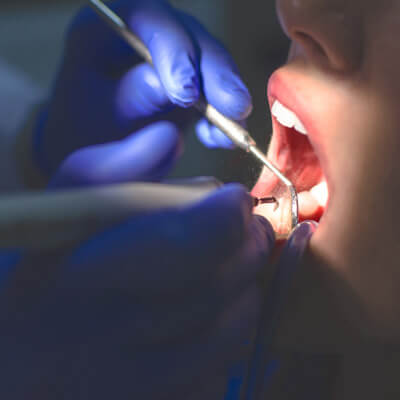Oral Cancer Screening in Penrith
 Just as getting various health screenings may detect serious medical conditions early, detecting oral cancer in its initial stages is crucial for saving lives. We’re committed to making these screenings simple, comfortable and stress-free at Smith Street Dental so it’s easy to stay proactive about your oral health.
Just as getting various health screenings may detect serious medical conditions early, detecting oral cancer in its initial stages is crucial for saving lives. We’re committed to making these screenings simple, comfortable and stress-free at Smith Street Dental so it’s easy to stay proactive about your oral health.
Signs That May Indicate Oral Cancer
Here are some common signs that may indicate oral cancer:
- Persistent sores on your lips or inside your mouth that don’t seem to heal
- Unusual lumps or bumps within your mouth
- Discomfort or pain in your mouth that doesn’t go away
- Difficulty or pain when swallowing
- Red or white patches appearing on the inside of your mouth
- Teeth that feel loose without an obvious cause
The Importance of Early Detection
What Does a Screening Involve?
Oral cancer can develop in various areas, including the lips, tongue, gums, cheeks, tonsils, and more. Our screenings are quick and non-invasive, designed to detect early signs before they become serious. During the screening, your dentist will visually inspect your mouth for any sores, discolouration, or uneven areas and perform a gentle examination of your neck to check for unusual lumps.
If any concerns arise, we’ll guide you through the next steps, such as a biopsy, ensuring you feel comfortable and cared for throughout the process.
Prevention Tips for a Healthier Lifestyle
In addition to getting a screening at our dental practice, there are some things you can do to reduce your risk of oral cancer:
- Quit smoking and limit alcohol intake.
- Practise safe sex to reduce HPV exposure.
- Eat a balanced diet rich in fruits and vegetables.
- Good oral hygiene and regular dental visits also play a key role in maintaining overall health.
Take the First Step Today
Regular oral cancer screenings at Smith Street Dental could help protect your smile and your health. Book your appointment today and take the first step towards optimal oral health.
Any invasive or surgical procedure may carry risks. Before moving forward, it is recommended that you seek a second opinion from an appropriately licensed medical professional.

